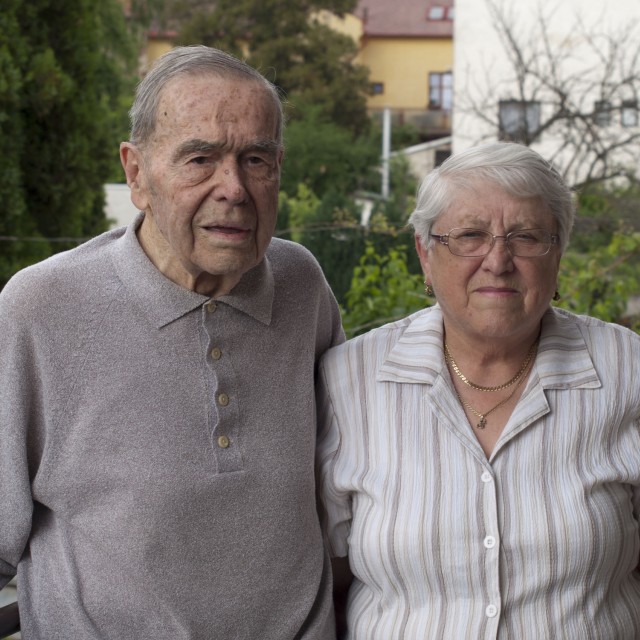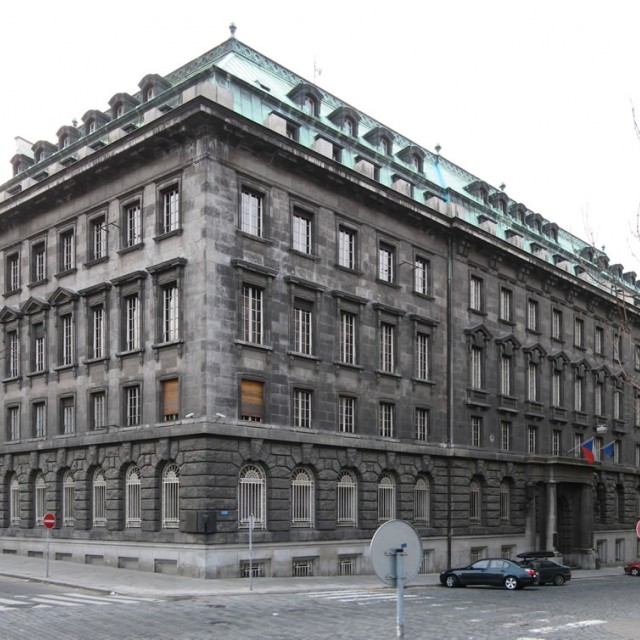How Long It Took I Do Not Know
In the summer of 1942, Bohuslav Bubník underwent a series of interrogation by the Prague Gestapo in the infamous building of the Petschek Palace; to this day he is still reluctant to talk about it: “They closed heavy curtains that were hanging on the yard-facing windows. Then the interrogation began. During the first questioning I was told that on that and that date I had visited the Novák family and I had carried a briefcase and a package. They wanted to know what I knew about the paratroopers who were the recipients of the package.” Bohuslav Bubník truly did cooperate with the Novák family in the resistance movement group Jindra. He became the contact-men between them and the base camp in Mělník: “I immediately realized that I must not admit to any cooperation or activity and that I must somehow wriggle out of it. So I said that the package was for the family and that I did not know about anything else.” The Gestapo was of course not content with such an answer and it resorted to violent interrogations. Bohuslav Bubník continues: “There were two helpers who wore just undershirts, and when they found out that I was kaput, they went to the next room to have a snack, I remember that they had some cherries on the table. I remember that I kept telling myself: ‘I am not kaput yet…I am still conscious, I must not confess to anything, I must hold on.’ So I got up and the interrogation continued. And it always happened again until I was kaput again. How long it took, I do not know.” Out of the entire Mělník group, only two men survived the interrogations: Bohuslav Bubník and Otto Paneš who had to go through similar martyrdom. The other members of the group, as well as their wives, were executed.
Hodnocení
Abyste mohli hodnotit musíte se přihlásit!
Trasy
Příběh není součastí žádné trasy.
Komentáře

Bohuslav Bubník
Bohuslav Bubník was born in 1918 in Mělník, where he also attended a school of fruit and wine growing. After that he continued with his studies at the University of Agriculture in Prague, until the closure of the Czech universities by the Nazis. Then started to work as a controller for the Association of Poultry, Eggs and Honey, first in Mělník and then in Prague. This job consisted of travelling around agricultural cooperatives and dairies in the entire Protectorate and buying and distributing foodstuffs. When he was five years old, he became a member of The Sokol movement. He took part in many competitions and through The Sokol he also joined the local resistance movement, (in Mělník alone almost hundred people participated). Bohuslav had access to food and was constantly travelling around the country which defined his role in the resistance movement. Later, after The Sokol movement was dissolved, the former head of the local Sokol group contacted Václav Novák, who in the middle of 1941 asked the group to join broader resistance movement. Bohuslav Bubník acted as a contact-men and gathered information about German military movements and supplies. After some time Novák involved the group into actions related to paratroopers. Yet about the assassination of Heydrich, Bubník learned only after all was over. On July 24, 1942 Bubník was detained for his involvement in the resistance movement. He withstood the interrogation, revealed nothing and was released on August 15, 1942. (Only two men were released: Bubník and Otta Paneš, the others never returned home). For some time Bubník remained cautious, but finally he joined the resistance movement again. He had been helping refugees who were hiding in the woods around Kokořín. At the end of the war Bubník collected weapons to help the incoming allied armies. After the war he tried to reestablish The Sokol movement, but he failed because of the new political environment. In 1953, he started to work in the Vitana company; in 1954 he moved to a state farm and finally he found a place at one of the local agriculture offices. During this period he successfully finished his studies, while working at the same time, (In the fifties, the situation was not favourable, though, so he finished his studies in the sixties.) After the Velvet Revolution in 1989 he strived for the reestablishment of The Sokol movement and became a mayor of the regional organization. However, he stepped down after some time because of his age and became a deputy mayor for economic issues instead. He was also the president of the local chapter of The Union of Freedom Fighters, a member of a district committee and a member of The Association of Czechoslovak Legionaries. In 2008, Mr. Bubník was awarded the Order of Tomáš Garrigue Masaryk, by the Czech President Václav Klaus. Bohuslav Bubník died on March 15, 2012 shortly before his 94th birthday.









